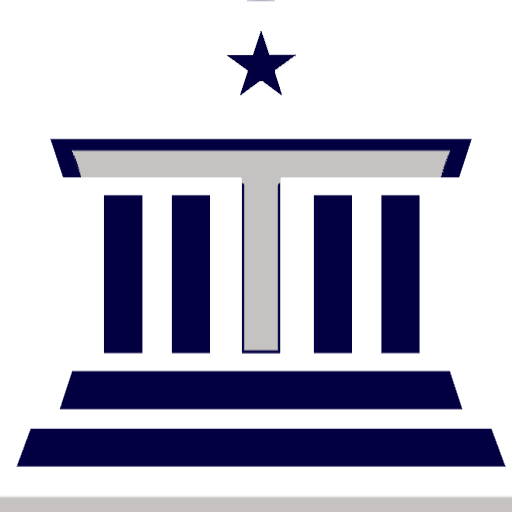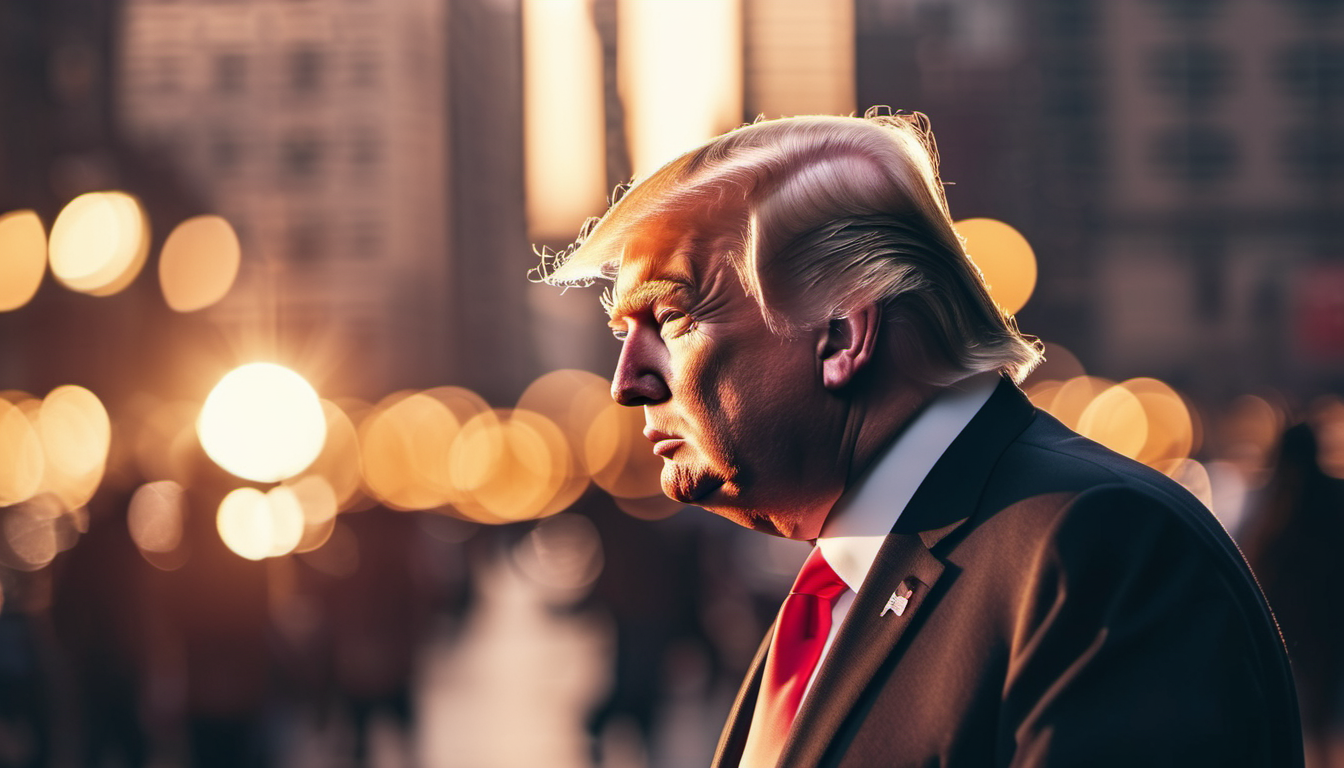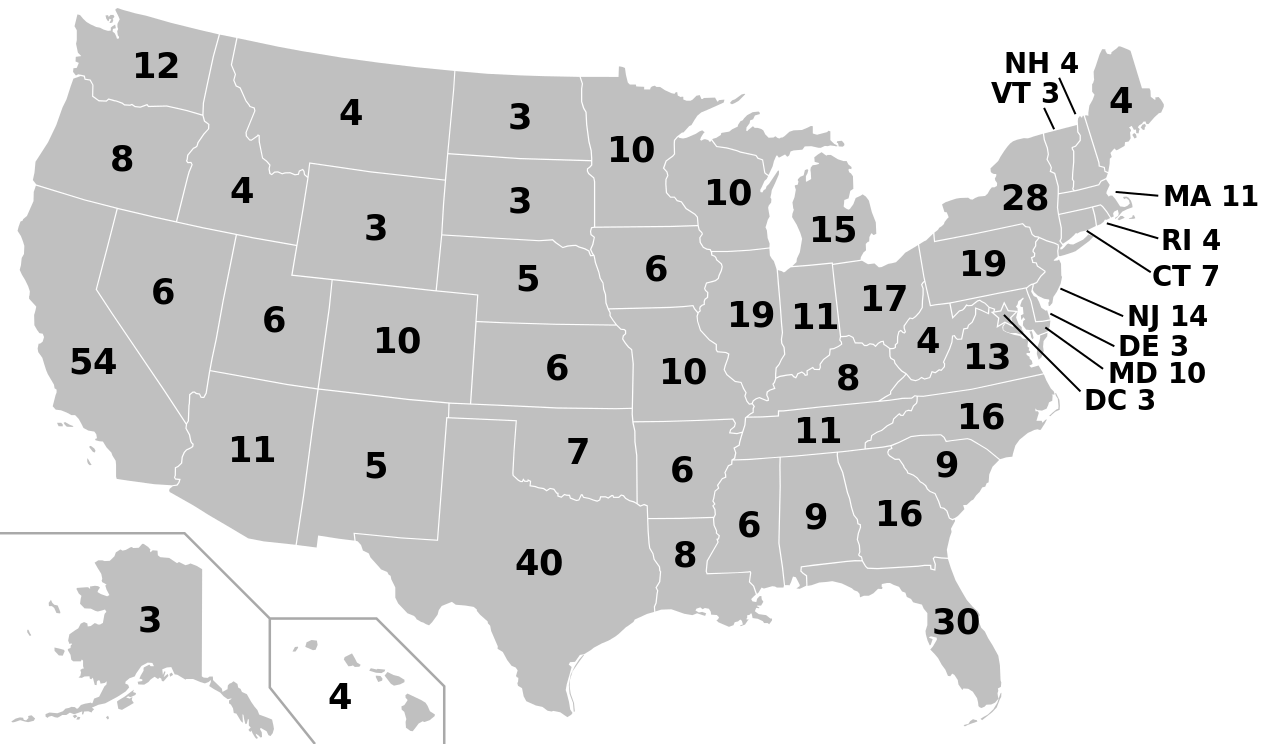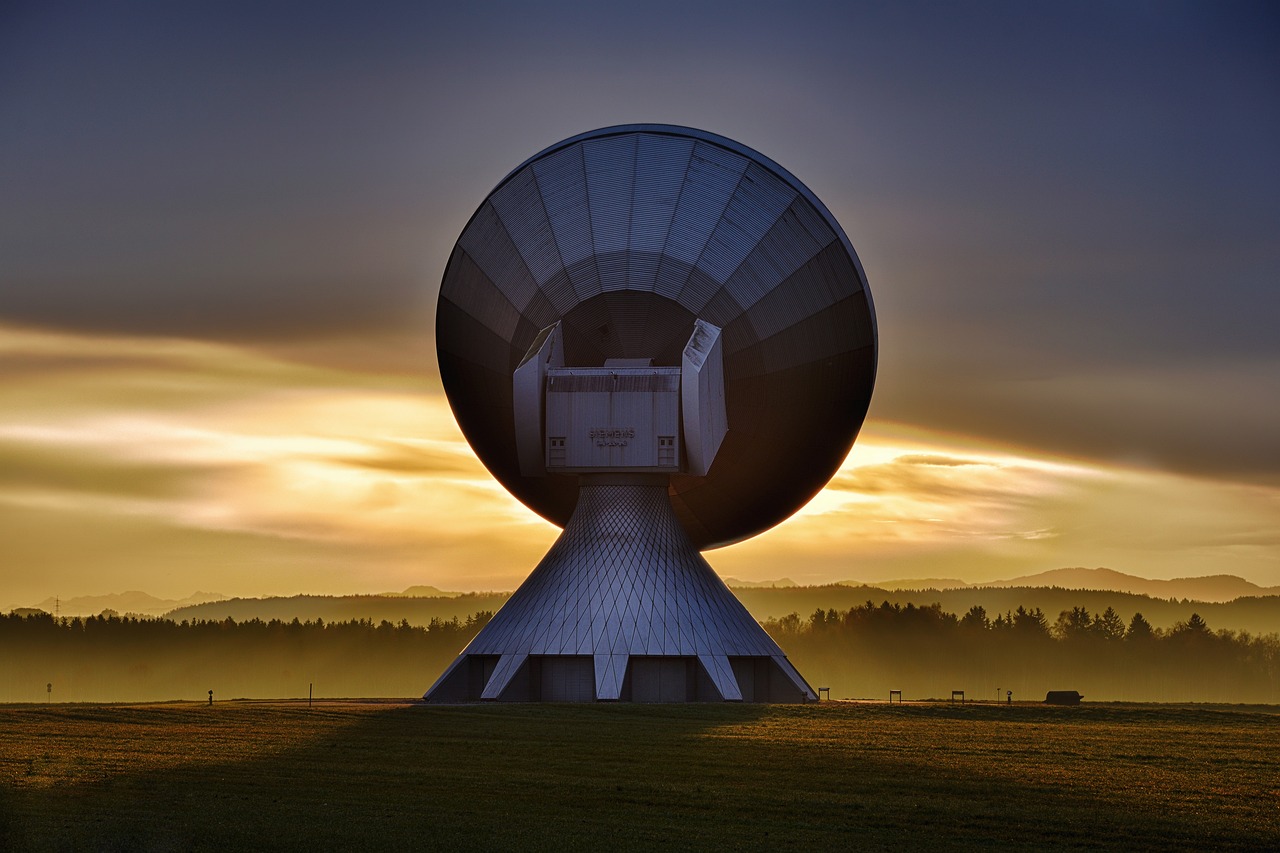
In an age of unprecedented polarization, it’s increasingly difficult to have conversations about politics. From the dinner table to social media, there is a growing fear that entering a political discussion can very well lead to an argument and no resolution. This is especially true in the United States today, where politics seem further entrenched than ever before. So how do we bridge the gap between those with different political opinions in the US? In this article, we will explore the reasons why politics has become such a divisive force in the US, and ways we can work together to create positive change.
The Current Landscape of American Politics
The political climate in the United States has become increasingly polarized in recent years. Political issues have become a source of intense disagreement, dividing the nation into two distinct camps. The election of the president is the most visible manifestation of this polarization, but it is not the only one.
Local government has become a battleground for political leaders who use their positions to push their party’s agendas rather than serving the interests of their communities. The divide is especially evident when it comes to issues like climate change, gun control, and healthcare, where political parties have taken hardline stances.
This division has led to a sense of distrust between people and their elected officials. As a result, political scientists are seeing more people disengaging from the political process, feeling that their voices are not being heard.
It’s important to find ways to bridge the gap between political factions to create a more united and collaborative country. One way to do this is to focus on shared values and goals rather than political party affiliations. As a famous quote by Benjamin Franklin goes: “We must all hang together or assuredly we shall all hang separately.”
It can be helpful to engage in open conversations with those who have a different political stance. It’s important to approach these conversations with respect and an open mind. Listening to other perspectives and understanding where they come from can help to create a more cohesive and tolerant society.
Another approach is to focus on common interests and work together to achieve them. For example, both Democrats and Republicans might agree on the importance of investing in infrastructure or reducing crime rates in their communities. Finding these shared goals can help to bring people together and reduce the partisan divide.
💡 key Takeaway: American politics is currently deeply divided, and this division is eroding trust and causing disengagement from the political process. To bridge the gap, it’s essential to focus on shared values, engage in open conversations with respect, and work together towards common goals.
The Growing Divide Amongst Americans
It is no secret that politics has become increasingly polarized over the years. The once-common ground between Republicans and Democrats has disappeared, and we are left with bitter divisions and a deep-seated divide across the nation.
At the core of this divide lies a lack of trust. According to a recent Pew Research Center poll, only 20% of Americans believe that they can trust the government to do what is right always or most of the time. This lack of trust extends not only to the government but also to political parties, news media, and even each other.
The political divide we are seeing is unprecedented in modern times.
Michael Dimock, president of Pew Research Center
The political divide in America runs deep. It is not just about policy differences, but it is about values, beliefs, and identity. People identify so strongly with their political affiliation that it becomes a part of their identity. This makes it incredibly difficult to have productive conversations and reach an understanding.
The bitter division has been exacerbated by the rise of social media and echo chambers. People are more likely to consume information that reinforces their beliefs and worldviews, leading to further polarization and detachment from opposing opinions.
However, there is hope. It is possible to bridge the gap and unite as a nation. We must start by listening and engaging with each other respectfully, acknowledging and trying to understand different perspectives. We must also hold our politicians and institutions accountable, demanding transparency and ethical behavior.
💡 key Takeaway: The political divide in America is at an unprecedented level, driven by a lack of trust, deep-seated divisions, and social media echo chambers. However, there is hope for a more united future by actively listening to different perspectives and holding institutions accountable.
The Influence of Social Media and Partisan Media
Social media has significantly changed the way we consume and engage with political content. People are constantly bombarded with information from a variety of sources, making it difficult to distinguish what is factual and what is not. In addition, social media algorithms have contributed to the creation of echo chambers, where people engage in communities that share their beliefs and values. As a result, the political debate has become more polarized and has amplified the divide between people of different political ideologies.
The polarizing pressures of partisan media have also contributed to the division in politics. News outlets with distinct political leanings tend to create content that appeals to their respective audiences. This content fuels confirmation bias and has a polarizing effect on the audience. People who consume political content from partisan media are more likely to hold extreme beliefs and opinions, making it difficult to find common ground with those who hold different perspectives.
However, there are efforts to bridge the gap between people of different political ideologies on social media. One way is through the use of moderation tools that promote civility and respectful discourse. Quote: “Platforms are increasingly adopting moderation approaches that promote and measure respectful communication, such as Reddit’s “Civil Politics,” Twitter’s “Healthy Conversations,” and Facebook’s “Building Community.”
Another solution is for people to engage in conversations with those who hold different political beliefs. This can help to increase understanding and promote mutual respect. People can also strive to expose themselves to diverse perspectives by reading news and opinion pieces from a variety of sources. This can help to break down echo chambers and promote a more nuanced understanding of political issues.
💡 key Takeaway: Social media and partisan media have contributed to the division in politics, but there are ways to bridge the gap such as moderation tools and engaging in conversations with people who hold different political beliefs.
The Rise of Populism and Its Impact on Politics
In recent years, the rise of populism has had a significant impact on American politics, contributing to the growing divide between political parties and their supporters. Populism is a political ideology that emphasizes the power of “the people” over political elites and the establishment. This ideology is not specific to any particular political party, but its rise has been most associated with the Tea Party movement and the election of Donald Trump as president.
Populism has led to a fragmentation of traditional party systems, as voters have become dissatisfied with the established political parties and are seeking alternatives. As a result, populist parties have emerged on both the right and left sides of the political spectrum, and some argue that this has contributed to the increasing polarization in American politics.
Populist parties have been particularly successful in attracting supporters of Donald Trump, who has been characterized as a populist figure. These supporters see themselves as part of a movement that is challenging the status quo, and they view traditional political elites with suspicion.
However, the rise of populism has also had negative consequences for American politics. Populist rhetoric often emphasizes divisiveness, pitting “the people” against minorities or political opponents. This has contributed to the growing polarization and hostility between political parties, making it increasingly difficult to find common ground and compromise on important policy issues.
Moreover, critics of populism argue that it undermines democracy and the rule of law by emphasizing the authority of a single leader over the institutions and norms of democratic governance. They point to examples of populist leaders who have used their power to stifle opposition and undermine democratic institutions.
In order to address the growing divide between political parties, it is important for Americans to recognize the limitations of populism and seek to find common ground on important policy issues. As supporters of Biden and supporters of Trump, we may have different ideas about what policies are most effective, but we cannot let those differences prevent us from working toward a shared vision for the country.
By fostering an open and respectful dialogue, Americans of different political stripes can bridge the gap and work toward a more united and prosperous nation.
💡 key Takeaway: The rise of populism has had a significant impact on American politics, contributing to the growing divide between political parties and their supporters. While populism has its appeal, it also has negative consequences for democracy and the rule of law. To bridge the gap between political parties, we need to recognize the limitations of populism and work
American Values and the Role They Play in Politics
American values are deeply intertwined with political discourse in the United States. For centuries, the country has prided itself on its exceptionalism, or the idea that the United States is a unique and exceptional nation with a distinct set of values and beliefs. However, as political polarization continues to divide the nation, the role of American values in politics has become increasingly contentious.
One of the central tenets of American society is the belief in individualism and personal responsibility. This value is reflected in the political arena through debates over social welfare programs and government regulation. Those on the political right tend to emphasize individual responsibility and argue against government interference, while those on the left prioritize collective well-being and advocate for government support of vulnerable populations.
Another key American value is the concept of freedom and liberty. This value informs debates over issues such as gun control, immigration, and civil rights. Supporters of the Second Amendment, for example, argue that the right to bear arms is essential to protect individual freedom, while opponents argue that gun control is necessary to ensure public safety. Similarly, immigration debates often center around the tension between securing national borders and maintaining a commitment to open borders and the value of diversity.
American exceptionalism plays a significant role in political discourse as well. The belief that the United States is a unique and exceptional nation with a special destiny is often used to justify foreign intervention and military action. Supporters of American exceptionalism argue that the country has a responsibility to spread its values and way of life to the rest of the world, while opponents argue that this is a dangerous and imperialistic attitude.
💡 key Takeaway: American values have played a central role in political discourse in the United States and continue to inform debates around issues such as individualism, freedom, and exceptionalism. However, these values are often used to justify opposing positions, leading to increased political polarization and division.
The Impact of Public Health Crises on Politics
Public health crises have always been political issues, as governments must take action to protect their citizens from outbreaks of diseases. The current coronavirus outbreak has highlighted the importance of public health preparedness and has had a significant impact on politics. In this section, we will discuss the impact of public health crises on politics and how it has contributed to the division in our country.
The Role of Political Institutions
During a public health crisis, citizens look to their government to provide guidance, support, and protection. The response of political institutions can significantly influence public opinion and can shape the outcome of future elections. The public health response to COVID-19 has become a political issue, with a sharp divide in the approach taken by the Democrats and Republicans. The politicization of public health issues has made it difficult to have a unified response to the crisis, resulting in a lack of a cohesive national strategy.
The Importance of Trust and Credibility
Trust and credibility are critical factors in the management of public health crises. The credibility of government officials and health experts is crucial to the success of any public health campaign. Unfortunately, the lack of trust and credibility has undermined the efforts of governments to manage the coronavirus outbreak. Politicization of the crisis has increased public skepticism and has eroded trust in the health experts and political institutions responsible for managing the outbreak.
The Impact on Public Opinion
Public health crises can have a significant impact on public opinion and political decision-making. The response to the coronavirus outbreak has been highly politicized, with the issue becoming an election issue rather than a public health concern. The dividing lines between Republicans and Democrats have become more pronounced, with each party offering different solutions to the crisis. This division has led to a lack of consensus on how to manage the crisis and has resulted in the politicization of the pandemic.
The Need for a Unified Response
The coronavirus outbreak has highlighted the importance of having a unified response to public health crises. It is essential to have a cohesive national strategy that includes political leaders, health experts, and the public in managing the crisis. The politicization of the crisis and lack of trust in public health officials have made it difficult to have a unified response. It is crucial to build trust and credibility in public health officials and political institutions to have a successful response to public health crises.
💡 key Takeaway: The coronavirus outbreak has had a significant impact on politics in the United States, highlighting the importance of public health
Effect of Political Divide on Local Communities and Small Towns
Politics has always been a divisive issue, but in recent years, the divide seems to have grown wider. The gap between the governing party and opposing party has become an insurmountable chasm, and it’s taking a toll on the country at large, but nowhere is the impact felt harder than in local communities and small towns.
The Political Divide
The political divide has an enormous effect on small towns and rural areas. These areas tend to be more homogeneous, with fewer political groups. When a political divide arises in such a small community, it can cause a significant disruption. In some cases, friendships and even families can be split. Political correctness and political activism from opposing parties in town centers may cause stress to the community. I have seen this firsthand in my hometown, where previously close-knit communities have been torn apart, with people limiting their interactions to those who share their political views.
Disruption of Community Development and Economic Progress
The political divide in small towns and rural communities also has an impact on the local economy. Disagreements between elected representatives can stall crucial infrastructure projects and hinder economic growth, making it difficult for small towns to attract new businesses. A town in which people can’t come together on issues can’t prosper.
Bridging the Political Gap
The only way to revitalize and move our communities forward is through cooperation. This means finding common ground to work on issues that directly affect the community, irrespective of who holds political power. A community initiative or a small-town project or a festival can bring people together and can result in a unified community.
💡 key Takeaway: The political divide affects small towns and rural areas more acutely than any other community. It disrupts the harmony of the community and can even cause the stagnation of the local economy. If we wish to undo the harm caused by politics and rekindle those community interests that brought us together, we have to find common ground and work together.
Strategies to Bridge the Political Divide
As the country becomes increasingly politically polarized, it’s more important than ever to find ways to bridge the gap. Fortunately, there are several strategies that can help bring people together and create common ground, even in the face of deep political divisions.
- Focus on Shared Values
One effective way to bridge the political divide is to focus on shared values rather than differences. As Thomas Carothers put it, “We have to find those shared beliefs, values, or interests that people can rally around.” By focusing on what brings us together rather than what separates us, we can find common cause and make progress despite our differences.
- Build Relationships Across the Divide
Another important strategy for bridging the political divide is to build relationships with people on the other side. As Andrew O’Donohue has noted, “We need to be talking to people outside our own bubbles.” By reaching out and engaging with political opponents, we can build trust, find common ground, and work together toward shared goals.
- Listen with Empathy
To bridge the political divide, it’s also important to listen with empathy. As Joe Biden said in his first speech as President, “We must end this uncivil war…We must reject a culture in which facts themselves are manipulated and even manufactured.” By truly listening to one another and seeking to understand different viewpoints, we can find ways to move beyond the divisions that have been tearing us apart.
- Acknowledge Mistakes
Another key strategy for bridging the political divide is to acknowledge mistakes on both sides of the aisle. As Pew Research Center studies have shown, Americans are deeply divided on a long list of other issues, from immigration to climate change to healthcare. By acknowledging past mistakes and seeking ways to rectify them, politicians and citizens alike can work together to find solutions to these complex problems.
- Look for Areas of Agreement
Even in the midst of deep political divisions, there are almost always areas of agreement to be found. By looking for points of overlap and shared values, we can begin to find common ground and work together toward solutions that benefit everyone.
- Practice Civil Discourse
In order to bridge the political divide, it’s also important to practice civil discourse. Rather than resorting to name-calling, insults, and personal attacks, we should strive to engage in respectful, reasoned debate that focuses on the issues at hand.
- Stay Informed
Finally, staying informed about current issues, what impacts you, your family and community as this can be significantly different than what others are informed about or care about. Understand what important to each one of us can help bridge the divide.
Final Thoughts
it is clear that politics has become a polarizing force in American society. However, it is also important to remember that we are all human beings with different opinions, experiences, and beliefs. To bridge the gap and start meaningful conversations, we need to listen actively, engage respectfully, and seek common ground. It is time to put aside our differences and work towards a more united and inclusive country. So, let’s start today by reaching out to someone who holds a different political view, having a constructive conversation, and finding ways to collaborate for the greater good.
FAQ
How do I know if I’m politically active?
Political activism typically entails contacting your elected officials, signing petitions, or attending rallies and protests.
What is the best way to understand politics?
Political science is the study of politics and the political process. It covers everything from the formulation of public policy to the workings of government.
What are some signs that I’m getting politically polarized?
Some signs you might be getting politically polarized include feeling like your political beliefs are universally accepted, feeling like you have to defend your positions at all costs, and feeling like you can’t discuss politics with anyone.
Why are politics dividing the nation?
Political polarization in the US has been on the rise in recent years. This is due to increasing political differences, which often manifest in protests and rallies. This has led to a decrease in the amount of bipartisan cooperation and compromise.
What can I do if I feel like my political
If you feel like your political views are being unfairly persecuted, it’s important to reach out to your local representatives and let them know. There are many ways to get involved in the political process, whether it be signing petitions, attending town hall meetings, or voting in elections.
How do I talk to my friends and family about politics?
There are a few ways to broach the topic of politics with your loved ones. Sometimes, it can be helpful to have a conversation starter ready in advance. You could also try engaging in casual conversation about the news or upcoming elections. Ultimately, it is important to be respectful and thoughtful when discussing politics with others.
How can I be more civically engaged?
There are a few ways to get more engaged with politics. You can find out more about the candidates and the issues by reading newspapers, watching news broadcasts, or following political blogs. You can also join a political club or organization, or participate in a protest or rally.
How can I make my voice heard in politics?
There are a number of ways to get involved in politics and make your voice heard. You can attend political rallies and rallies to express your opinion on social media. You can also write letters to your local and state newspapers and participate in online forums to voice your opinion. You can also join political clubs or organizations and get involved in the political process.
How can I be a more effective advocate for change?
There are a few things you can do to become a more effective advocate for change: Understand the issues and find ways to connect the dots between them. Identify allies and build relationships with people who share your vision. Stay persistent and stay flexible always be open to learning new information and changing your perspective.
What can I do if I feel politically divided?
If you feel politically divided, there are a few things you can do. Firstly, try to talk to your family and friends about your views on the political situation. This will help to build relationships and open up discussions that may not have taken place before. Secondly, try to read articles and books that challenge your own beliefs. This will help you to broaden your perspective and understand other points of view. Finally, try to get involved in political protests or activism. This will help you to voice your concerns and show your support for change.









Leave a Reply